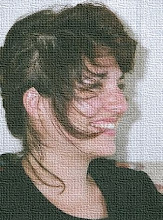Natalie Chanin from Alabama Chanin says,”Products today have to be sustainable and they have to be beautiful.”
In the words of Paulette Cole, CEO of ABC Carpet and Home, “Beauty is the spoonful of sugar which allows you to become aware of the need for service in the world. We all need beauty, and we can satisfy that need while creating beauty and planetary health for others, too.” Or as Gandhi said: “There is no beauty in the finest cloth if it makes hunger and unhappiness.”
“Desirability is sustainability in fashion,” explains Ali Hewson from Edun. “There is no point in having well-meaning principles if you can’t deliver on that,” especially when dealing with the consumers focused on ‘wanting’ instead of ‘needing.’
Quality now has become a bigger word which encompasses the quality of the terms of how goods are made, where they are made, who makes them and under what circumstances. Thus value embraces many more qualities beyond price redefining the world map with new players. This explains why South America is now the new hip destination. It also explains why heritage, authenticity and tradition are very much appreciated today.
The mantra is: “live wisely and responsible for you and for the generations to come.” The consumer as citizen is the new definition and this involves participation, conversation, input, exchange of opinion. A good citizen is aware and constantly confronts and validates prices as related to quality and brand promise. Price is what people are willing to pay for something while value relates to the intrinsic worth. These two concepts are in sync more than ever.
1. Featured Aeshetics+Ethics concept
Yak is the future of luxury fabrics and a great present and future for the Tibetan Plateau.
The philosophy behind Norlha is to provide a sustainable development model around yak fiber. The herdsmen on the Tibetan Plateau need to diversify their income and develop employment opportunities. This can be easily achieved by using their own, underused raw materials, in this case, yak fiber. Nomads are practical people who have little time for finery. In the old days, they made everything they needed, but now, they buy most of it. Spinning and weaving for everyday use were widespread, though the new generation had little or never practiced it. Through the production and commercialization of beautiful scarves and throws, Norlha merges nomadic culture with the resources from the area to achieve a sustainable model where luxury and development converse.






+-+copia.jpg)







No comments:
Post a Comment